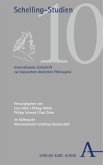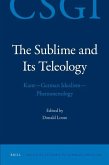Against the background of early modernism - a period that justified punishment by general deterrence - Kant is usually thought to represent a radical turn towards retributivism. For Kant, and later for Fichte and Hegel, a just punishment respects the humanity inherent in the criminal, and serves no external ends - it is instituted only because the criminal deserves it. In this original study, Jean-Christophe Merle uses close analysis of texts to show that these philosophers did not in fact hold a retributivist position, or even a mixed position; instead he traces in their work the gradual emergence of views in favour of deterrence and resocialisation. He also examines Nietzsche's view that morality rests on the rejection of retribution. His final chapter offers a challenge to the retributivist position, and a defence of resocialisation, in the context of current legal theory and practice concerning the punishment of crimes against humanity. This original study examines the views of Kant, Fichte and Hegel on punishment, and traces in their work the gradual emergence of views in favour of deterrence and resocialisation. Merle also examines Nietzsche's view that morality rests on the rejection of retribution.
'Merle's book is a first-rate, refreshingly new piece of scholarship on Kant and German idealism. Almost all scholarship on the philosophers in question either argue or just assume that Kant, Fichte, and Hegel are retributivists when it comes to punishment. Merle shows that the relevant texts in question are in fact very ambiguous, even somewhat confused in places, but that it is overwhelmingly clear that none of these three philosophers holds an unequivocally retributivist position. In reading this book, I not only found my own prior views on the topic challenged, I found I had learned a great deal by the time I had finished.' Terry Pinkard, Georgetown University








